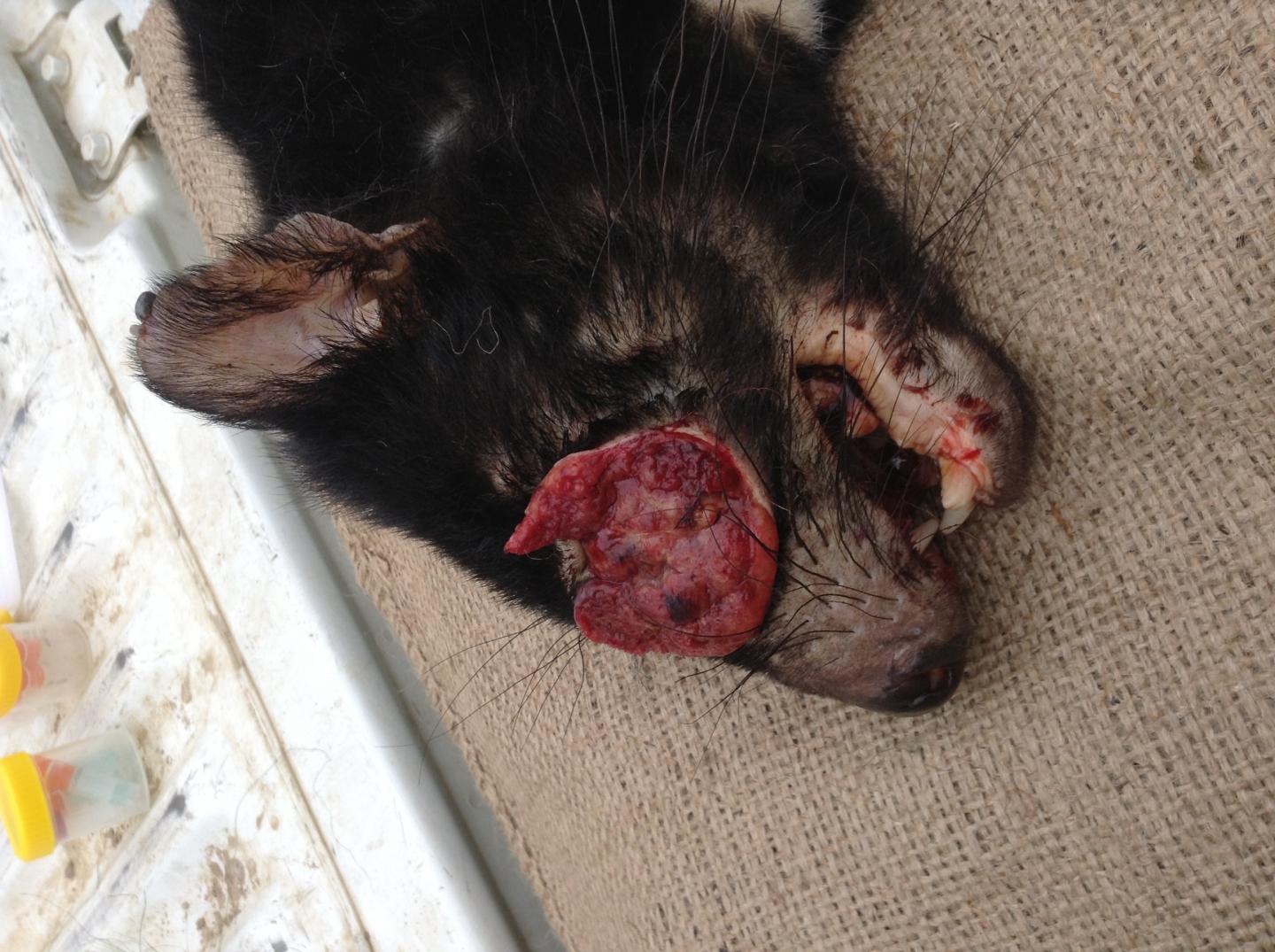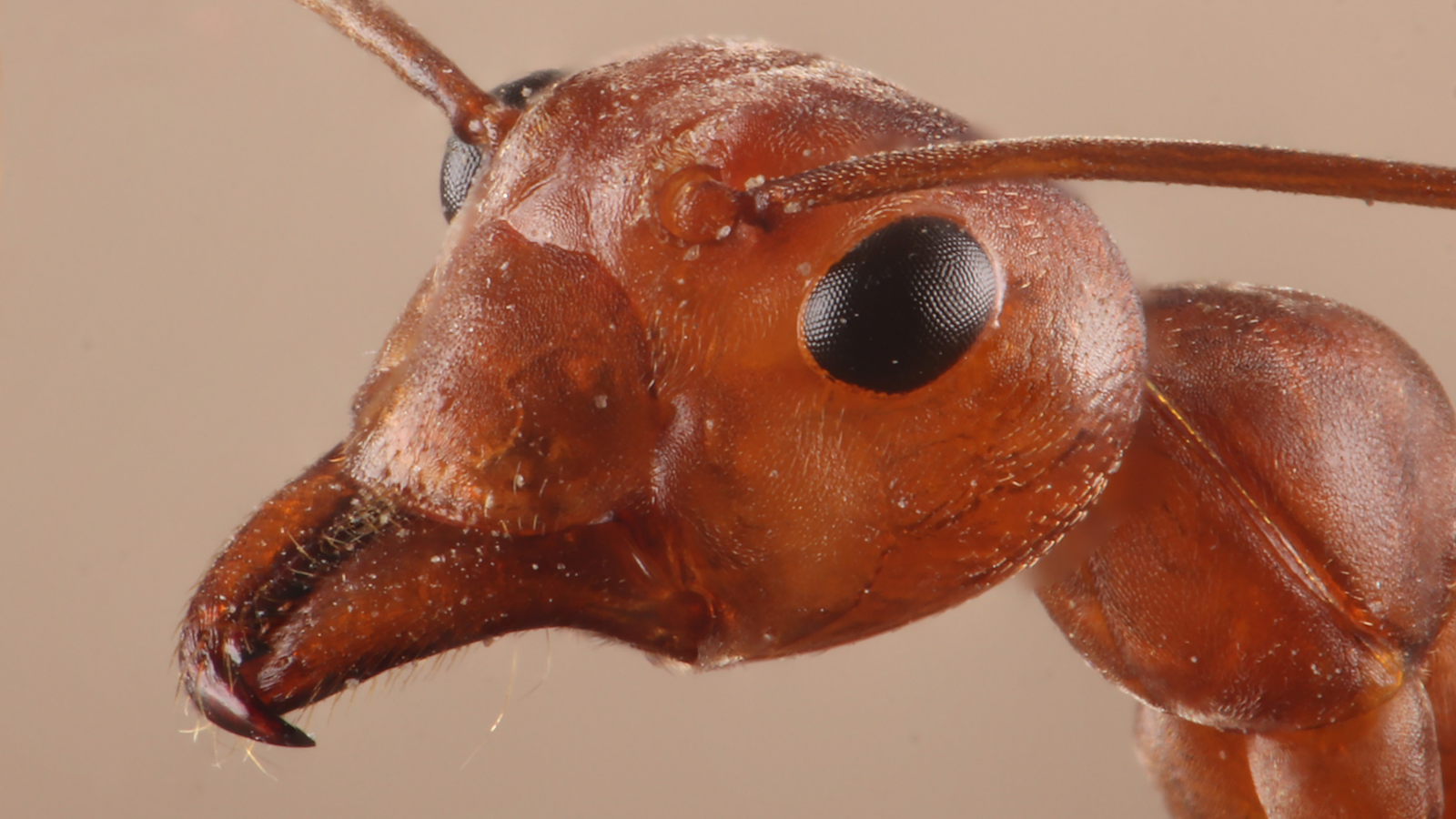Tasmanian Devils' Mysterious Cancer May Come in Two Varieties

The Tasmanian devil has long been known to suffer from an unusual type of cancer that can spread from animal to animal, but now researchers say the endangered species is plagued by at least two kinds of infectious cancer.
The finding suggests that Tasmanian devils are especially prone to the emergence of contagious tumors, and that transmissible cancers may arise more frequently in nature than previously thought, scientists added.
Tasmanian devils (Sarcophilus harrisii) are marsupials, like kangaroos and opossums; females have pouches to carry and suckle newborns. The furry, dog-size mammals are found only on the island of Tasmania, which sits about 150 miles (240 kilometers) south of Australia. Fossil evidence suggests that Tasmanian devils were once spread across the Australian mainland, but disappeared from the area about 400 years ago. [Fun Facts About Tasmanian Devils]
Devils are known for their offensive smell, disturbing screeches and viciousness while eating. These creatures became the largest living carnivorous marsupial in the world after another species, called the thylacine, or Tasmanian tiger, went extinct in 1936.
Farmers considered the devils pests to livestock, and many of the animals were killed before the species became officially protected in 1941. The Tasmanian devil is not only a key tourism icon for Tasmania, but also ecologically critical to the island's native ecosystem.
Now, the devils are bedeviled by contagious facial tumors that kill the animals within a year of reaching maturity. The disease was first reported in 1996 at a site in northeast Tasmania. By 2007, the disease had spread across more than half of the devils' home range. Some populations of the animal have lost up to 89 percent of their members because of this epidemic. Researchers say extinction of devils is possible unless officials can find a way to eradicate the disease.
The disease is spread through biting during fights over food and during mating. (The only other known infectious cancer that can spread through bites occurs in dogs and is known as canine transmissible venereal tumor.)
Sign up for the Live Science daily newsletter now
Get the world’s most fascinating discoveries delivered straight to your inbox.
Previous research suggested that the cancer, which is called devil facial tumor disease (DFTD), originated from a genetic mutation in nerve cells in a single, female Tasmanian devil. In devils that have the disease, cancerous lesions around the mouth, face and neck grow to the point that they prevent the animals from eating, and eventually starving them to death. There are no treatments for the cancer, and it is currently 100 percent fatal.
In the new research, scientists discovered that devils are actually suffering from at least two different transmissible cancers.
"Transmissible cancers are extremely rare, but for two [to occur] in the one species, astonishing," said study co-author Gregory Woods, an immunologist at the University of Tasmania. "Maybe transmissible cancers are more common than we believe."
This second type of transmissible cancer in devils, known as DFT2, has been detected in eight devils in southeast Tasmania. It causes facial tumors just like the disease seen before, now dubbed DFT1.
However, DFT2 is genetically distinct from DFT1. For instance, DFT2 possesses a Y chromosome, which means it came from a male and not from a female, as DFT1 did.
The researchers made the discovery when they were growing DFTD1 cells in lab dishes in order to study them, and noticed the cells were behaving slightly unusually, Woods told Live Science. "When we discovered and confirmed the second case, we were absolutely astonished. We almost didn't believe our own work."
It remains uncertain why devils are especially susceptible to such cancers. Previous research suggested one culprit is the extremely low level of genetic diversity in the devil population, which is due to their small numbers. Since all living devils are so genetically similar, their immune systems may not easily recognize invading tumor cells as foreigners.
Scientists are seeking to develop a vaccine to help the devils fight against DFT1, but those plans may now need an update, researchers said. "Our vaccine research may have to include this new cancer," Woods said.
Future research investigating whether transmissible cancers are more widespread than currently thought should analyze "species that are frequently in physical contact," Woods said.
The scientists detailed their findings online Dec. 28 in the journal Proceedings of the National Academy of Sciences.
Follow Charles Q. Choi on Twitter @cqchoi. Follow Live Science @livescience, Facebook & Google+. Original article on Live Science.











